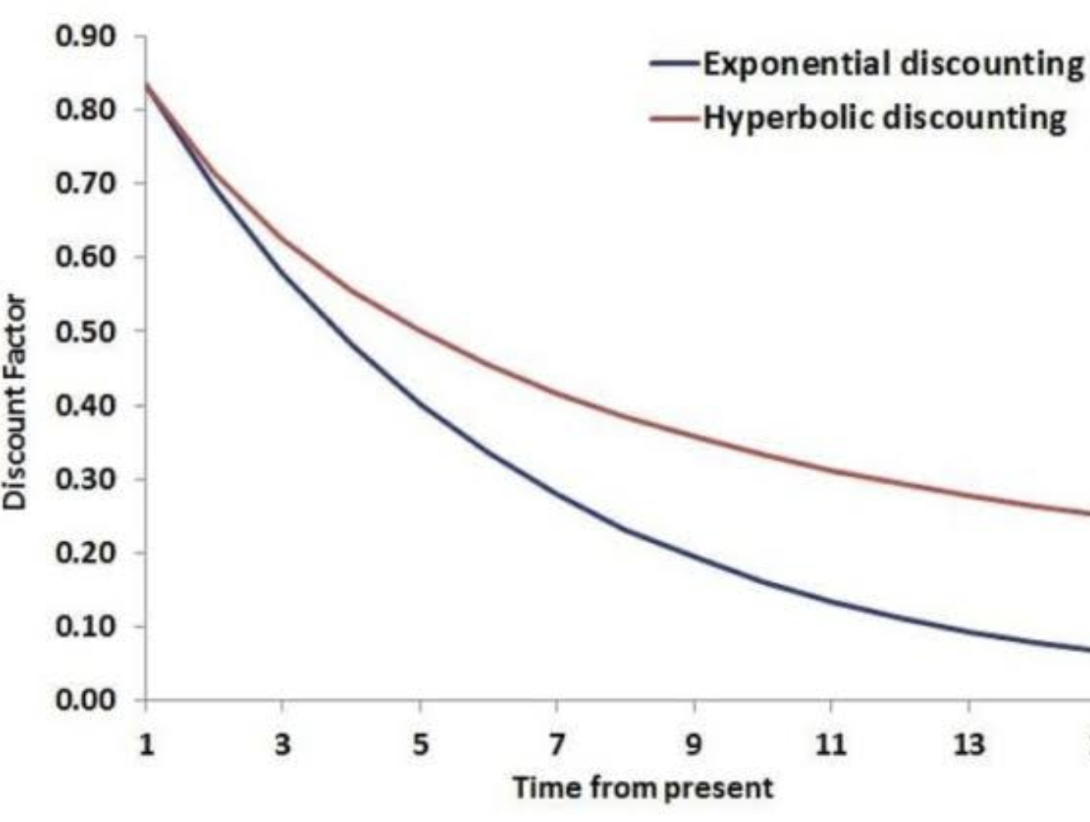We recently did our company offsite in the beautiful town of Mussoorie, Northern India (view from our balcony below) and when we were arranging the logistics, I bumped into an interesting scenario. We are a remote team and people were coming from 10 different cities. We wanted people to come in within a window of time, which means not just before a specific time but also after a specific time. There are many reasons why we’d want this but the simple ones are 1. we don’t spend extra on their stay or travel and 2. not have them be inconvenienced of waiting alone for others. This is a simple problem but it highlights an important aspect of life, that it is sometimes imperative to do a specific thing just at the right time and not earlier.

Frank Partnoy’s Wait is an intriguing book that delves into the idea of how procrastination is a boon (when used correctly) and our natural inclination to sit on decisions may actually be an evolutionary feature and not a bug. It also has some practical insights on how simple techniques can wrap our sense of time and prime us into doing things slowly or faster. For example, we can be primed into cramming lessons faster by simply looking at fast food brands’ logos 🤯
Slow reactions in a fast world
Our fast thinking system 1 derails a lot of our careful analysis. We want to conserve energy and so following rudimentary heuristics (like if this scares my sense of self, I will defend my thoughts) helps us avoid spending brain cycles (energy) considering many scenarios in detail. We make broad generalisations and assumptions by having a tiny exposure to an event or situation, appropriately called thin slicing. This can not only lead to bad decisions but may even ignite unconscious racism.
“Don’t just do something, stand there”
This was a funny exchange with one of the doctors quoted in the book to make the point that when you’re out of your depth, not immediately doing anything and taking the time to process is the best course of action. The book also describes studies on cricketers and how delayed shot selections often lead to better performance over the years. In professional sports and in life, it makes sense to delay actions as long as is possible.
Whenever we find ourselves in a time bound situation, we must
- Assess how much time we have at our disposal
- Delay the final decision to as long as is possible
Structure of a delayed reaction
Popularised by Air Force Colonel John Boyd, the OODA loop is how we may want to react to scenarios in timelines that span minutes.
- Observe – gather info
- Orient – process it and put it in perspective
- Decide – what to do
- Act – execute
The same steps can however be applicable to split second decisions too. Thin slicing and knee-jerk reactions overrides our decision making apparatus and so this conscious OODA style slow reacting need practice.
Timing is everything
The book has an absorbing section dedicated to how comedians use timing to great effect. They delay and delay and delay the punch line for its optimal impact. This is true for general speech as well where delays can help in emphasising specific points.
Another important aspect of life where timing is of the essence is apologies. There is a Goldilocks zone of apologising, meaning you can apologise both too quickly and too late. Too quickly and people think you don’t mean it and don’t regret your actions. Too late and it’s too late to repair the damage.
Time bias
When we value small gratifications now over big ones down the line (think: marshmallow experiments), we are suffering from a kind of time bias. This isn’t a personality quirk, it is an evolutionary coding.
A negative rate of return is applied on things acquired over time, for ex evaluating how much an amount of money is worth 10 years from now, in today’s terms. A 5% discount rate means something will be less valuable to us by x/ 1.05^n, n years down the line. This is exponential discounting where the discount rate remains the same.

Many psychological studies have demonstrated deviations in instinctive preference from the constant discount rate. As we get older we prefer instant gratification and so the discounts become hyperbolic i.e. the farther the payoff in the future, the higher the mental discounting.
This can also be thought of as a type of procrastination. When we have high discount rates and what we are dealing with is a cost (like spending time to write a paper) -> we procrastinate. When what we are dealing with is a benefit (having another donut) -> we are acting impatiently. You can take a time paradox survey to understand how time biases affect you.
To summarise, don’t be so hard on yourself when you realise you’re procrastinating. Understand your time biases and help yourself and others make better decisions by making use of all the time you have at your disposal.
I run a startup called Harmonize. We are hiring and if you’re looking for an exciting startup journey, please write to jobs@harmonizehq.com. Apart from this blog, I tweet about startup life and practical wisdom in books.